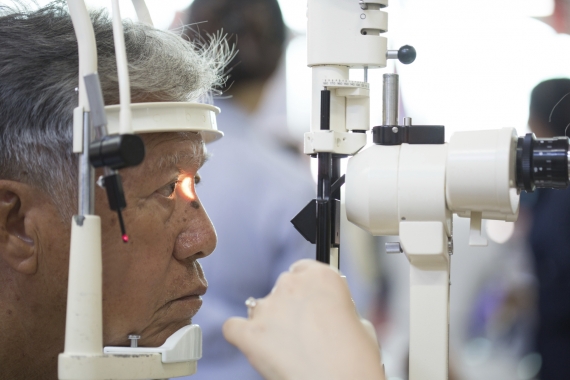10 Facts You Should Know About Diabetes and the Eyes
Diabetic eye disease is a group of eye conditions that can affect people with diabetes, such as diabetic retinopathy, cataracts and glaucoma. Here are 10 facts you should know about diabetes and the eyes from the experts at Elmquist Eye Group.

Facts About Diabetes and the Eyes
- Diabetes is the leading cause of new cases of blindness among adults between the ages of 20 and 74.
- The most common cause of vision loss among people with diabetes is diabetic retinopathy, which is caused by changes in the blood vessels of the retina.
- About one in three people over age 40 who have diabetes already have some signs of diabetic retinopathy
- Diabetic retinopathy often goes unnoticed until some vision loss has already occurred.
- Once diagnosed with diabetes, you are 60% more likely to develop cataracts. Cataracts also tend to develop at an earlier age in people with diabetes.
- Once diagnosed with diabetes, you are 40% more likely to develop glaucoma.
- People of Hispanic, African American, Asian American, Pacific Islander and Native American descent are more likely to develop diabetes and diabetic eye disease.
- Controlling diabetes and the early detection, timely treatment, and appropriate follow-up care of diabetic eye disease can protect against vision loss.
- Finding and treating diabetic retinopathy early can reduce the risk of blindness by 95%.
- If left unchecked, vision loss due to diabetes is irreversible.
Schedule a Diabetic Eye Exam
A dilated eye exam can spot diabetic eye problems early and stop or slow their progression before irreversible damage is done to your vision.
The doctor will place drops in your eyes so that he/she can see the entire inside of your eye. The drops enlarge your pupils and cause them to open wider (dilate). An examination through a non-dilated pupil is not acceptable because many areas of the retina cannot be visualized without pupil dilation.
The doctor will look for signs of any diabetic eye disease, such as evidence of any retinal bleeding or fluid leakage from blood vessels. Regular dilated eye exams can help protect your sight and make sure that you are seeing your best.
Your eye doctor at Elmquist Eye Group can provide you with more important facts about diabetes and the eyes and help you keep diabetic eye problems under control. Get in touch with us today at (239) 936-2020 to schedule an eye exam so that we can help you keep your eyes healthy and preserve your vision.
